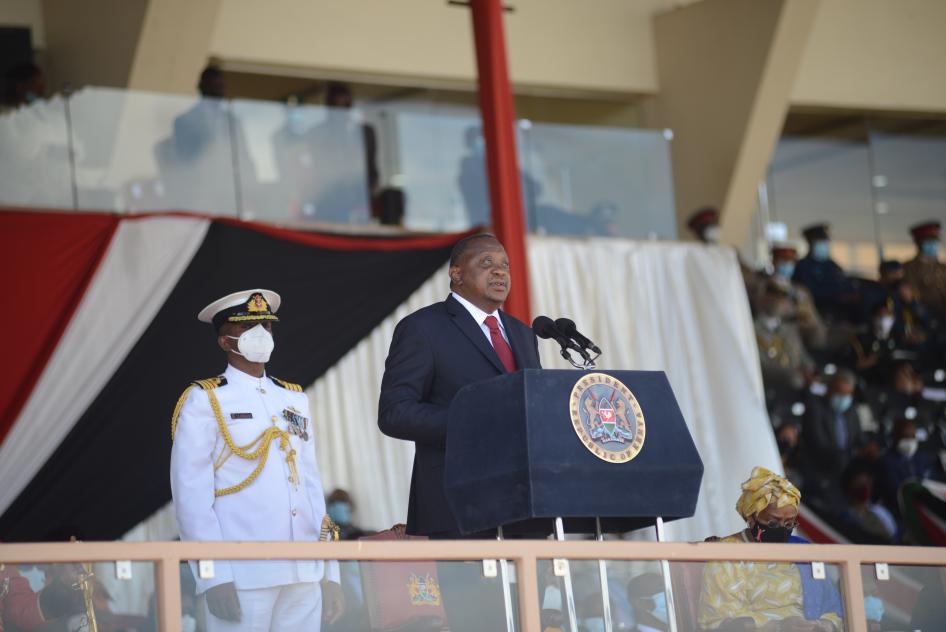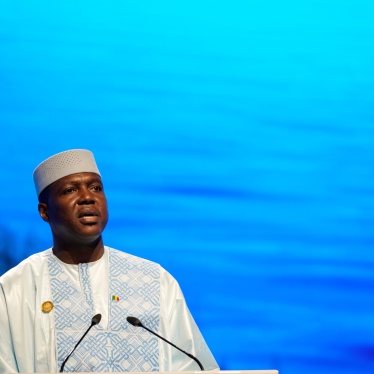When President Uhuru Kenyatta of Kenya addressed the East African Community’s (EAC) virtual summit as its new chairman on 27 February, he spoke of strengthening partnerships and taking the region to “greater heights”. He said nothing of deteriorating human rights. The community’s leaders unveiled comprehensive plans towards political integration, but without taking corresponding measures to strengthen democracy among its seven members.
If Kenyatta truly wishes to use his leadership to re-prioritise the EAC’s founding principles, that should include good governance, democracy, rule of law and respect for human rights and social justice. These were key principles when the East African Community was founded in 1967 by Jomo Kenyatta of Kenya, Milton Obote of Uganda and Julius Nyerere of Tanzania. This group collapsed in 1977 due to political differences, but the project was revived in 2000 as the EAC with an emphasis on achieving a political confederation. It now includes South Sudan, Rwanda, Burundi and DR Congo.
Worryingly, all seven member states have recently been characterised by serious human rights abuses and injustices. Several of the EAC’s governments have failed to hold security forces to account for serious crimes, including torture, extrajudicial killings and enforced disappearances. In the last year, many member states have exploited the COVID-19 crisis to violate freedoms of expression, assembly and association beyond the limitations permitted under international human rights law during public health emergencies. The quality of elections and political plurality has continued to deteriorate. Violent repression of opposition politicians, independent journalists and activists has become the hallmark of election cycles across the region.
Uganda’s elections this January were characterised by widespread violence including killings, enforced disappearances, beatings and arrests of opposition supporters and journalists, the disruption of opposition rallies, and a shutdown of the internet. In Tanzania’s October 2020 elections, authorities killed numerous people, arbitrarily arrested scores of opposition leaders and supporters, suspended television and radio stations, censored mobile phone communication, and blocked social media. Burundi’s May 2020 elections, which took place in the absence of international observers, saw access to communications blocked as opposition members were beaten and arrested throughout the election period. And Kenyatta’s own 2017 re-election was initially invalidated by the courts who ordered a revote due to allegations of fraud. Before and after the re-run, security forces killed scores of protesters, arrested opposition supporters and shut down four TV stations for several days.
The new regional leadership, headed by Kenyatta, could change course for the benefit of populations across East Africa. It could urge EAC members to respect national laws and the international human rights treaties that each of them has ratified, recognising that meaningful progress will only be realised when governments prioritise democracy and rule of law. Kenyatta could publicly support the Court of Justice and urge his fellow heads of state to carry out its human rights rulings in full.
But this is easier said than done. First, EAC member states have historically never been strong on human rights. Its difficulties in accepting the EACJ’s decisions provide adequate warning. Furthermore, Kenyatta has not convincingly demonstrated in his nine years as president that he has what it takes to spearhead the EAC towards greater rule of law. He has failed to ensure justice for the victims of human rights abuses, including rampant killings by the police, in Kenya.
This means that barring coordinated pressure by citizens across member countries or a major shift in global dynamics in favour of democracy like in the 1990s – both of which seem unlikely – there is little hope the EAC will take major steps towards prioritising human rights any time soon.
Yet the EAC risks becoming irrelevant should it fail to transform into a more effective institution capable of achieving stated objectives or one more responsive to the needs of the region’s population. It is near meaningless, even self-defeating, for the bloc to push for “development” and “integration” of a people that are hardly free to enjoy their rights, where victims cannot get justice, and leaders violate rights and freedoms with impunity.
Correction [5/5/21]: The article originally stated that the East African Common Services Organisation, the EAC’s precedent, was founded in 1967. This has been corrected to explain that the EAC itself was founded in 1967.









